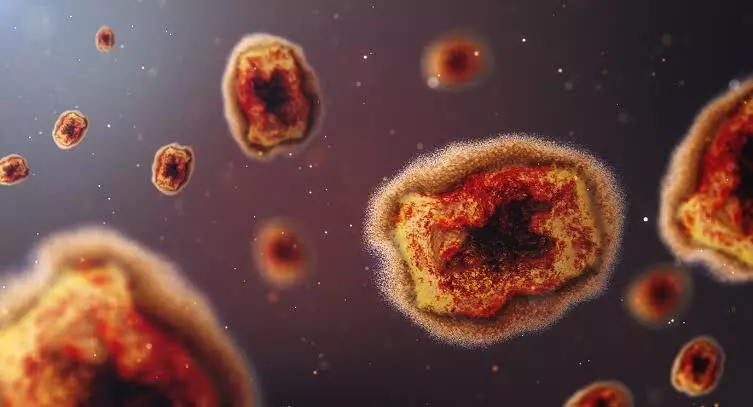
New monkeypox strain discovered in UK, patient hospitalized
text_fieldsLondon: A second monkeypox strain has been identified in the UK, linked with travel to west Africa, public health officials have said.
According to the UK Health Security Agency (UKHSA), an individual who had recently traveled to west Africa has been admitted to the high consequence infectious diseases (HCID) unit at the Royal Liverpool University Hospital in Merseyside with the strain.
The UKHSA said preliminary genomic sequencing indicates that this new case does not have the current outbreak strain circulating in the UK.
"We are working to contact the individuals who have had close contact with the case prior to confirmation of their infection, to assess them as necessary and provide advice," said Dr. Sophia Maki, Incident Director at UKHSA.
"UKHSA and the NHS [National Health Service] have well-established and robust infection control procedures for dealing with cases of imported infectious disease and these will be strictly followed and the risk to the general public is very low," she said.
"We remind everyone who is planning to travel to West and Central Africa to be alert for the symptoms of monkeypox and to call 111 if you have symptoms on your return," she added.
While contact tracing of close contacts of the individual is underway, no further linked cases have been identified so far. The ACDP advice states that importations of monkeypox directly from West Africa as well as cases caused by Clade I of the virus should still be classified as HCIDs as their characteristics cannot be predicted.
Single genital lesions and sores on the mouth or anus have also been identified as symptoms of the virus by an international collaboration of clinicians across 16 countries. Some of the symptoms are considered severe enough for patients to be admitted to the hospital.
According to expert reports, gay and bisexual men are disproportionately affected by the spread of the disease, with sexual closeness the most likely route of transmission. Monkeypox can also be spread via any close contact.






















